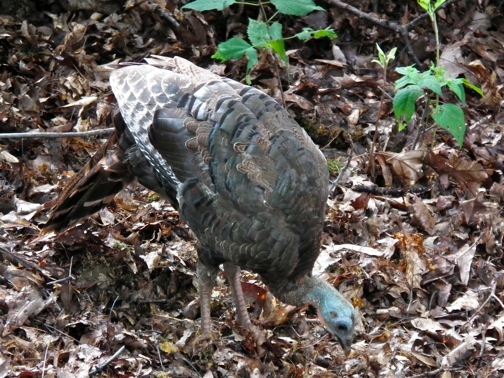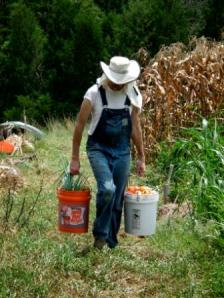
A few years ago, before I married Rabbi Ben, I found this little lost duckling and adopted it. I've always had a soft spot for animals... maybe even a little bit TOO MUCH compassion!
I love animals. I always have. When I was a child we always had a cat in my house and I would chase after and attempt to hug pretty much any other animal I saw, from dogs to lizards to frogs. For a while, I even wanted to be a veterinarian (until that frog we had to dissect in 9th grade biology class!).
At some point about 5 or 6 years ago, I took it into my head that I wanted chickens. I honestly don’t remember what gave me that crazy idea, but I told all my friends about it and next thing I knew, my friend Farmer Ben was hatching chickens and raising them in his backyard! In the meantime, I was living in a small apartment in Miami and dreaming of the day when I could have my own chickens.
The first few years that I read this week’s parsha I would become very upset when reading about the mother bird. “If a bird’s nest happens to be before you on the road, on any tree or on the ground – young birds or eggs – and the mother is roosting on the young birds or on the eggs, you shall not take the mother on the young. You shall surely send away the mother and take the young for yourself, so that it will be good for you and it will prolong [your] days.”
My initial reaction to this was always one of compassion. That poor mother bird! She has given life to these baby birds, or these eggs she’s waiting to hatch, and you’re taking them from her! Imagine how she must feel! When I would share this sentiment with other people, they would tell me I have too much compassion. Judaism is a religion that teaches a middle-of-the-road approach to all middot (character traits). No one middah should be taken too far – compassion included. If we feel compassion even for things or people that are undeserving of our compassion, they could end up causing increasing harm. Showing too much compassion for a murderer could result in him being back out on the streets and doing it again, for example.

The laws about chasing away a mother bird before taking her eggs becomes suddenly relevant when you think about how we get our eggs - especially if you want to raise the hens yourself!
As the years have gone by, my perspective on the mother bird situation has changed. Having spent time on farms and some day wanting to have chickens of my own, I understand how I will want to take their eggs when they lay them. Farmer Ben once told us a story of when he was working in an organic egg “factory.” The chickens would sit on their perches and lay eggs, which would land in a basket below them. Every day, Farmer Ben would have to put his hands in and retrieve the eggs, with the chickens pecking at him the entire time. The birds didn’t want their eggs taken! But in the afternoons, he said, the chickens would go outside to eat or get some sun and would forget their eggs. At those times, he could stick his hand in without being pecked at. By the time they came back, the birds had forgotten about their eggs entirely. Although the birds experience distress when their eggs are taken from before their eyes, they don’t experience any after being shooed away. By giving us this commandment in the Torah, Hashem has struck a perfect balance: just enough compassion, but not too much.
It’s a lesson we should carry through our lives. Any character trait we have can be good or bad, depending on how it’s used and how much of it we apply. And even if it’s not a bad character trait we have too much of, having excess of a good character trait really can be “too much of a good thing.”
As we work on ourselves during this holy month of Elul, as we approach the days of Rosh Hashana and Yom Kippur when we are judged and the book of our next year is written and sealed, let us work on finding balance… in every aspect and every part of our lives.
Shabbat shalom.
Read More













